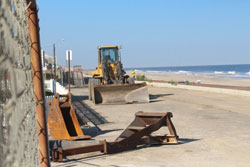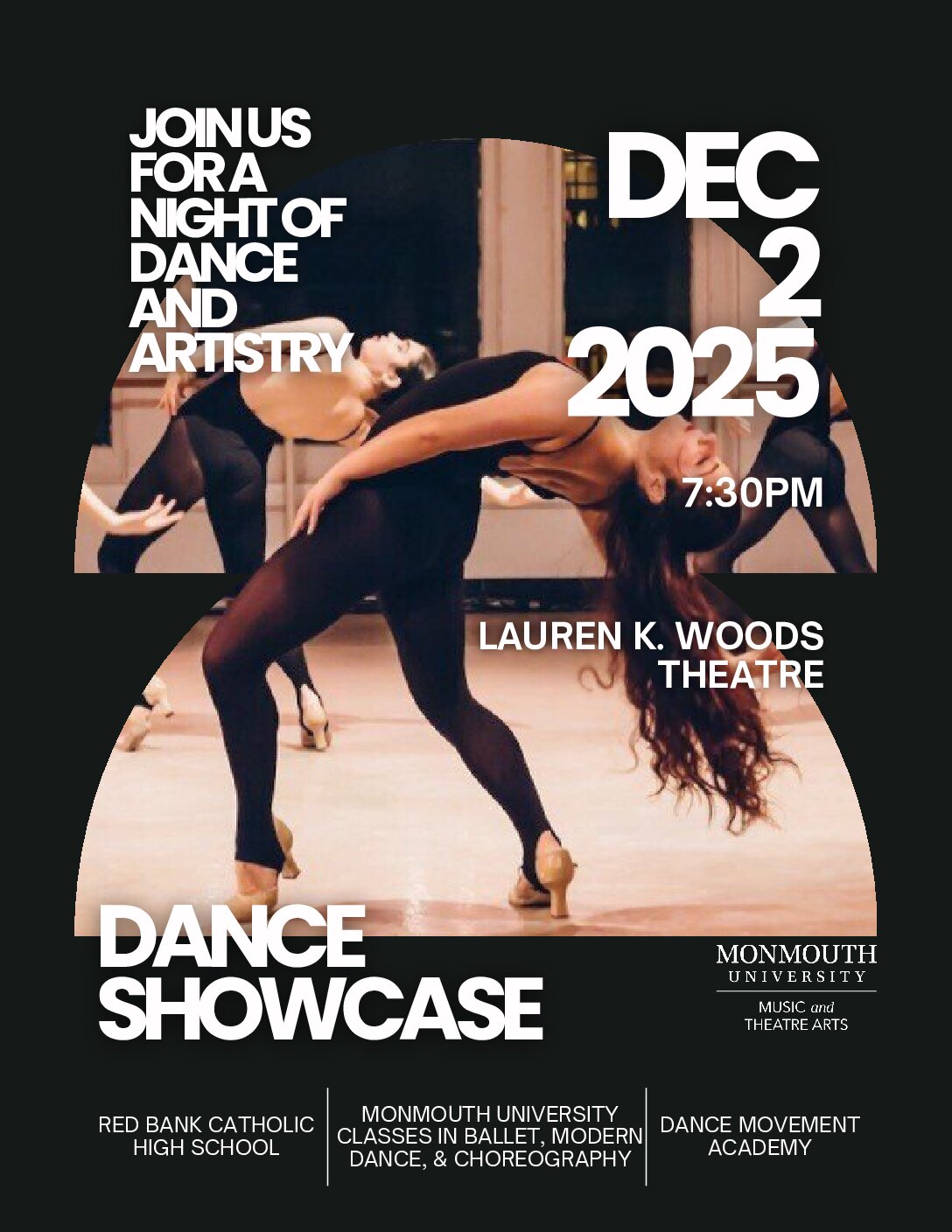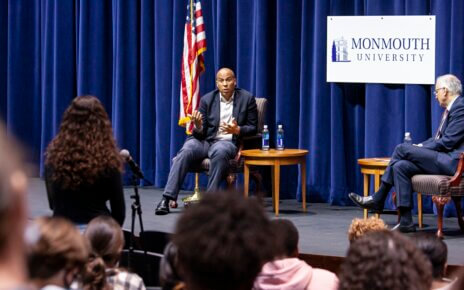Over the past two semesters the University has been working with the consultants Dartlet in order to better understand what it means to be a student at Monmouth University. These research findings were presented throughout the last two weeks in Feb. to members of the University.
Dartlet is a company that works with universities and other clients to help them identify and define their best, authentic self.
The research included 11 workshops with 206 participants and 180 more participants online. These participants were a combination of alumni, current students, and faculty. There was a 99 percent confidence level regarding the research findings.
The research found that, “We have a caring environment, determined leaders, we are forward thinking, confident, and we are included in this concept of a refined inspirer. These are very classic, sophisticated personality traits,” said Tara Peters, Associate Vice President of University Marketing and Communications.
“One of the biggest findings was that we are caring, compassionate, and we have a sense of community,” said Mary Anne Nagy, Vice President for Student Life and Leadership Engagement. “I think that we, as a campus, have lead with that and have talked about that for a very long time. Examples would be the hawks fly together campaign, the counseling services that are available, and the mentoring that many of our professors do. All of that is about saying you, as a student, are a critical element of this community and you will be cared for. These points were really confirmed within the research.”
Nagy also commented on the idea presented that the University can be identified as a traditional, classic place with refined inspirers. “There was this other piece, the idea of being refined, traditional, elegance, and inspirer, that people more externally saw, which is interesting and it may be an area that we don’t realize. We may need to highlight those aspects a little bit more than what we are now. When people look at this campus I could understand why people would think that it is a pretty iconic campus,” said Nagy.
Peters explained why the research was done and its purpose. “The research was not meant to provide the University with a new slogan, but was meant to help enhance the reputation of the University. It’s essential to remember that there are personality characteristics for companies and organizations and it’s important for them to represent the best things about themselves. To continue to attract students and alumni and donor support we need to be the best versions of ourselves. This research could help us advance.”
This research is to be applied to the marketing and enrollment departments. “These research findings are very important to the Enrollment Management division because they expand the ways we message to prospective students about the Monmouth University experience,” said Lauren Vento Cifelli, Associate Vice President of Undergraduate and Graduate Admission. “We will be determining how to integrate this messaging into our campus tour, collateral, and general messaging in the coming weeks.”
Vento Cifelli also pointed out how she appreciated the work that Dartlet completed. “I thought that Dartlet took an interesting approach to analyzing the data, but was not surprised by the results. There are so many wonderful attributes of the Monmouth experience and I was happy to see what we know about Monmouth to come through during this exercise.”
These results could be helpful to students when they discussing what is like to be a student at the University. “I think where it’s a value for students is its helping them as they talk to their friends about the Monmouth experience. This exercise that we went through helped us understand who we are. One of the main points is that if you really want to differentiate your institution you need to demonstrate who we really are. Some of the sessions discussed the MU bench and how it has been a success to the University. If someone talks about mu they may discuss as proud and competitive. An example would be the bench and the pride they exhibit,” said Peters.
Melanie Doe, a junior social work student, discussed her experience at the University and the feeling of community it communicates. “Monmouth is a really student focused community. In the last few years I personally have seen some changes that are aimed toward fostering the idea of students being a main priority such as changing the food service or adjusting library hours to better fit the needs of students,” she said.
The 11 workshops that took place last fall were about two hours long. Nagy spoke about this experience. “During the workshops last semester it was interesting to take some time and really think about what are the qualities of the University. I thought it was a very good process.”
Peters said that overall the research does not change anything about the University currently but does help us understand who we are and how to talk about ourselves. What this does is teach us how to talk about who we are in a deeper way. I want to meet with different schools on campus and try to help them apply this research when telling their story.”
“Its been an exercise that has been going on for quite a long period of time. There has been a lot of time and effort put into it. There has been participation at many levels of the community. The research reinforced what we knew and opened our eyes to things that maybe we should be thinking about more,” said Nagy.



